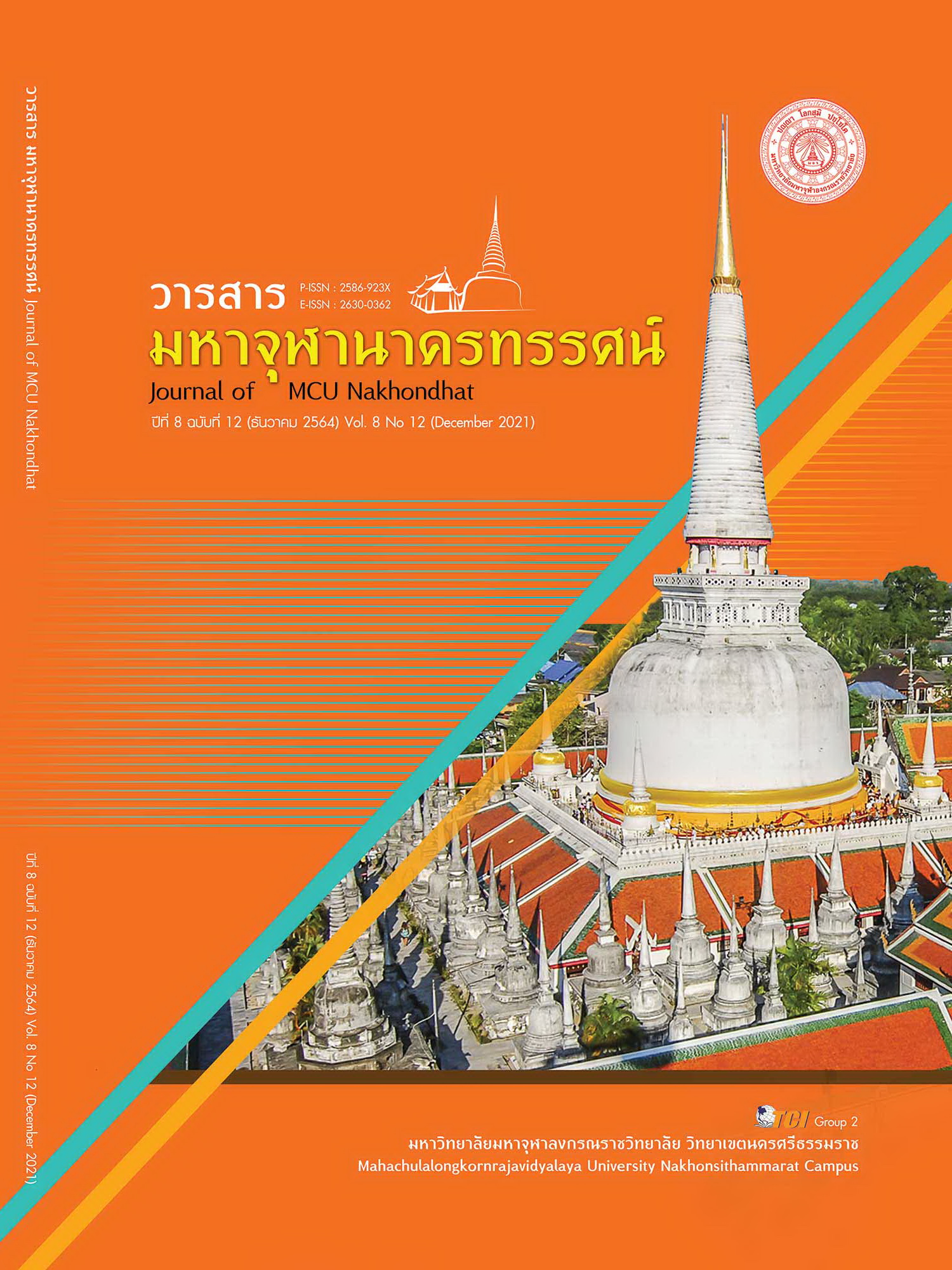DRUG LAW ISSUES: STUDY OF THE USE AND POSSESSION OF AMPHETAMINE AND ITS DERIVATIVES
Main Article Content
Abstract
The Objectives of this research article were to study problems of drug law related to people using and possessing amphetamine and its derivatives, including criminal measures, enforcements, and reasonable punishmentsfor these people based on the comparison of Thailand’s and international drug laws.Theresults will be presented as a suggestion for related drug law improvement to be more appropriate.Theinformation in this qualitative study was researched from documents, textbooks, theses, research reports, articles, laws, including searching the Internet bycomparing Thailand’s and international drug laws in order to optimize the law.The findings revealed that the problems of drug law related to amphetamine and its derivatives in Thailand owing to the change of amphetamine and its derivatives from psychotropic substances in category 2 to narcotics in category 1. In contrast, the Portuguese Republic and the Federal Republic of Germany prescribed them as just psychotropic substanceswithout applying criminal punishment to the drug users and possessors of amphetamine and its derivatives. This was different fromThailand’s drug law whichstipulatingimprisonment punishment for using and possessing. It did not conform to the principle that considered drug users as patients receiving treatment. Therefore, the amphetamine and its derivatives should be changed to psychotropic substances in category 2 and replaced the criminal punishment with other measures.
Article Details
References
ประกาศกระทรวงสาธารณสุข ฉบับที่ 135. (2539). เรื่อง ระบุชื่อและประเภทยาเสพติดให้โทษ ตามพระราชบัญญัติยาเสพติดให้โทษ พ.ศ. 2522. ราชกิจจานุเบกษา เล่ม 113 ตอนพิเศษ 23 ง หน้า 40 (16 สิงหาคม 2539).
รัฐธรรมนูญแห่งราชอาณาจักรไทย. (2560). ราชกิจจานุเบกษา เล่ม 136 ตอนที่ 40 ก หน้า 1 (6 เมษายน 2560).
วิเชษฐ์ สินประสิทธ์กุล. (2560). ปัญหากฎหมายทางการแพทย์และสาธารณสุขของสารแอมเฟตามีนและอนุพันธ์. ใน วิทยานิพนธ์นิติศาสตรมหาบัณฑิต สาขานิติศาสตร์. มหาวิทยาลัยธุรกิจบัณฑิต.
ศักดิ์ชัย เลิศพานิชพันธุ์. (2556). การศึกษากฎหมายยาเสพติดในต่างประเทศ : ศึกษาเฉพาะกรณี ประเทศญี่ปุ่น ฝรั่งเศส สวิตเซอร์แลนด์ เยอรมัน โปรตุเกส อังกฤษ และสหรัฐอเมริกา. กรุงเทพมหานคร: สำนักกิจการในพระดำริพระเจ้าหลานเธอพระองค์เจ้าพัชรกิติยาภากระทรวงยุติธรรม.
สง่า อัครปรีดี. (2561). การใช้มาตรการทางเลือกอื่นแทนการลงโทษทางอาญาในความผิดเกี่ยวกับยาเสพติดสำนักงานกฤษฎีกา. เรียกใช้เมื่อ 10 มิถุนายน 2564 จาก https://www.krisdika.go.th/data/activity/act213
สัญญพงศ์ ลิ่มประเสริฐ และคณะ. (2562). การลงโทษผู้กระทำผิดทางอาญางานประชุมวิชาการระดับชาติมหาวิทยาลัยรังสิต ประจำปี 2562. มหาวิทยาลัยรังสิต. เรียกใช้เมื่อ 24 เมษายน 2564 จาก https://rsucon.rsu.ac.th/files/proceedings/ nation2019/NA19-109
สำนักกิจการในพระดำริพระเจ้าหลานเธอพระองค์เจ้าพัชรกิติยาภา. (2558). สถานการณ์ปัญหายาเสพติดและแนวโน้มของปัญหา. กรุงเทพมหานคร: กระทรวงยุติธรรม.
สำนักงานคณะกรรมการป้องกันและปราบปรามยาเสพติด กระทรวงยุติธรรม. (2563). รายงานผลการดำเนินงานป้องกันและปราบปรามยาเสพติด ประจำปีงบประมาณ พ.ศ. 2563. เรียกใช้เมื่อ 10 มิถุนายน 2564 จาก https://www.oncb.go.th/Home/Pages/ DOC_narcotic_2563.aspx
European Monitoring Center For Drugs and Drug Addiction. (2017). Germany Country Drug Report2017. Retrieved April 25, 2021, from https://www.emcdda.europa.eu/system/files/publications/4528/TD0416906ENN.pdf
Germany Drug Control Data and Policies. (2020). Drug Policy Facts. Retrieved April 25, 2021, from https://www.drugpolicyfacts.org/region/germany #Data


